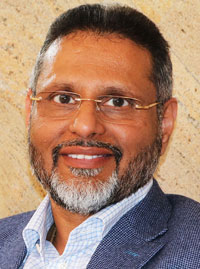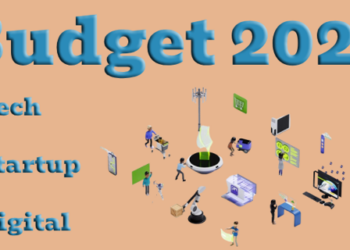This pandemic saw the rise of many edtech platforms. The FM has an opportunity to make education available to all by giving tax relief, reducing GST, ease of raising capital, which in turn will make the sector invest in better network to reach out to Tier 3 & 4 young minds.
Dr. Ajeenkya DY Patil, Chairman of the DY Patil Group: “The last 2 years have been difficult for all of us, and if I were to look for some sliver of positivity, it would be how we as a nation have responded to the challenges. I believe education is the foundation of a successful society and the exponential rate at which technology has enabled edtech solutions and their adoption over the last 18-24 months, has been pleasing to see. There is a realisation that we need to enable our youth to ready them for the future and embrace the new flexible ways of learning and development to ensure they enter the workforce with the best possible preparation, not just from a knowledge perspective, but also with the right skill sets. With Edtech we should now take the education to the students, wherever they are.
With the upcoming budget, this government has a unique opportunity to show that India, with its young workforce, is ready to lead the way into the future of education. I am going to be keenly watching the Union Budget on February 1, 2022, and would welcome measures like tax relief, ease of raising capital for edtech sector, and also as a country, how much we are going to invest in the internet connectivity and reach to enhance our digital infrastructure.”

Achin Bhattacharyya, CEO & Founder, Notebook – India’s first after-school digital learning portal: “There is an expectation for an Increase in allocation towards education in this year’s budget Keeping in mind the fact that last year it was slashed by @ 6 % – To reap the demographic dividend in the emerging knowledge economy of the future we must prioritise tomorrows strategic needs over today’s operational needs and invest more in education. As a country with the highest number of school-goers in the world, we need to invest heavily in teachers training and workshops. Taking into account the current scenario of education in the country the need of the hour is to invest heavily in Research Infrastructure in the country to stop brain drain which has existed and thrived for nearly half a century now. Looking at the cost of education in the country, the Goods and Service Tax (GST) on educational services should be reduced from 18 per cent to 5 per cent. We need to appreciate the fact that during pandemic private organisations have successfully contributed towards filling the gaps in the public education system that was caused by the disruption. Hence we need to make their offering more affordable and accessible to the masses. Long term tax exemption and funding support to ed-tech firms will go a long way towards ensuring that the sector is able to attract and retain quality talent who are educators by choice and not by chance and lastly more PPP (public-private partnership) projects are needed to ensure that quality education content reaches each student and every teacher in the country”.
Shivam Dutta, Co-founder and CEO AlmaBetter :“The pandemic has affected several industries all over the world. Education industry was also hit badly as schools and campuses had to shut down. The Edtech industry took the opportunity and improvised a lot by introducing cloud based learning solutions. Government acknowledged the work and initiatives introduced by the edtech platforms to create an adaptable route towards making quality education available to everyone digitally.
With so much push for digital India and pandemic pushing education online, students and professionals will benefit the most by learning from the comfort of home, gaining new skills and getting better opportunities in the market. The edtech industry is providing a vast range of offerings from learning and instructional software’s to up skilling and reskilling programs. The government is expected to invest in creating a robust digital infrastructure for the start-ups coming up with innovative ideas and offerings. Hence, it is the need of the hour from the government to invest and provide funds to EdTech companies to bring forth affordable and easily accessible education to the masses including students from Tier II and Tier III cities.”

Dr. Chenraj Roychand, Founder Chairman, JAIN Group: The Government of India has announced to present the Union Budget for the year 2022-23 on February 1, and expectations have started to build up across various industries including education. In the current fragile state of the economy, the implementation of the National Educational Policy can be one of the main aspects of the Union Budget 2022-23. In 2021, the central government reduced its allocation towards Education by 6%, effectively making it an allocation of 93,223 crores. However, the good news this year is that it is expected to increase the allocation by around 10%. This is mainly due to the attribution to healthcare in the last year.
The impact of the pandemic on the education system, particularly the public education system has made us increasingly reliant on supplementary sources of education, primarily provided by private organizations. In the recent past, these had been categorized under “Educational Services” and taxed at 18% under the Goods and Services Tax (GST). This year we expect that the government will reduce this to 5%, and help to ease pressure on particularly those students who come from lower and middle-class families.

Dr HR Nagendra, President of (VYASA) and Chancellor of (S-VYASA): During the last year’s budget, it was recognized by the government that the AYUSH sector has a great potential to serve a huge number of healthcare needs of people and contribute to the growth and development of this country. Rightly the Hon’ble PM has inducted a Cabinet minister rank and MOS to the ministry of AYUSH. It is now important and expected to promote new drug discoveries in systems of AYUSH extensively. Also to promote cost-effective and evidence-based yoga Therapy, Naturopathy and other Non-Pharmacological interventions. For this purpose, we hope the government will allot substantially more funding in the new budget for research to expedite and facilitate high end research. As the government is already spending and investing a lot in the health sector, it is necessary to allot substantially more funds for the AYUSH Sector. Also, we are suggesting the Government to allot dedicated funds for top Institutions, research scholars and young doctors for supporting and encouraging them to work hard and discover more vaccines, Pharma drugs and effective non pharma formulations in AYUSH. This will help boost the Government’s Atma Nirbhar Bharat Mission.

Deepak Mittal, CEO and Co-Founder, TO THE NEW: “We believe 2022 will be an incredible year for the Indian IT & ITeS industry. Despite facing the worst hit during the second pandemic wave, IT spending in India was unaffected and is forecasted to increase by 7% this year. We believe the upcoming fiscal policy will encourage technology adoption. From a macro perspective, we expect it to support innovation and drive business resilience by leveraging new-age technologies.
Digital transformation should be an on-going effort by the Indian government to pave the way for more agile and dynamic businesses. Prioritizing this effort would also result in hiring a workforce to deliver on the technological needs. Fueled by technological progress, India’s economic growth will increase exponentially.
It would be beneficial for our industry if the Budget also directs some resources on building a robust e-learning ecosystem, implementing online innovation, and scouting suitable technological tools to enhance the online learning ecosystem. We are eager for this year’s Budget announcement and what it has in store for this industry.”

Shilpa Gandhi – ISC Section Head and Coordinator, Jasudben ML School: People have displayed remarkable resilience and adaptability in these uncertain times. It is urgent now to focus on school education. The Central Government along with stakeholders of the Education Sector must work to restore a sense of normalcy and build resilience into this sector.
Normalcy will come once efforts are directed towards returning students to the classrooms. Technology alone cannot bridge the gap. The Central Government should appoint more teachers, train them to create classrooms with fewer students like ‘Study Bubbles’ to restore and sustain live interactions in a safe environment.
Resilience needs an appropriate support system. Children’s education has been compromised due to financial uncertainty and constraints. Government should create avenues for educational financing to support parents and schools. Insurance designed to mitigate risks that disrupt a child’s education should be provided. This will ensure continuity and improve accountability of the Education Sector.

Sahil Miglani, Co-Founder, Geekster: “The Pandemic has changed the way learning happens and fast-forwarded the adoption of online education by 5-10 years. Delivering quality education to every town and village of the country is now possible, provided we improve the digital infrastructure.We expect the Government to revisit the high GST on education related services, and overall higher budget allocation to this sector.”

Himanshu Tyagi, CEO & Founder of Digikull: In India, any skill development related service must come under the lowest tax slab. The government should revisit the 18% GST on skilling, which is very demotivating for the students who want to gain skill-related education. Even the loans related to education must be provided for lower interest rates. Only then will we be able to say that in India the policies are encouraging towards education and literacy. During the pandemic too the edtech played a vital role in keeping the show running for education institutes. Now they need the Budget to consider a decent allocation to the sector to suffice for long term tax exemption, technology and accessibility.

Rachit Agrawal, Co-founder & Director of AdmitKard: “This budget we expect to see the Indian economy moving its focus to build stronger capabilities in the school infrastructure to enable the hybrid model of education which has become essential in the recurring pandemic scenario. Additionally, early education needs to get more tech enabled and we expect that should work in favor of the EdTech community. Further, there should be greater emphasis on skills and language training in order to make Indian youth ready for the global economy, and encouraging more Indians to migrate for work or studies,”

Karanvir Singh, Founder & CEO, Pariksha – Vernacular EdTech Company: “In the current times, to build a successful startup one needs to have a strong team. However, retaining talent is not as easy when you are running a young business. In order to be able to attract and retain talent a lot of start-ups started offering ESOPs. We really would like the government to consider the tax structure on ESOPS, such that it be taxed only at the time of sales and not at the time of exercising, as the case currently is. Additionally, a centralised Professional Tax system on the lines of GST will further help, and increase the ease of business for start-ups operating in multiple states.”






















